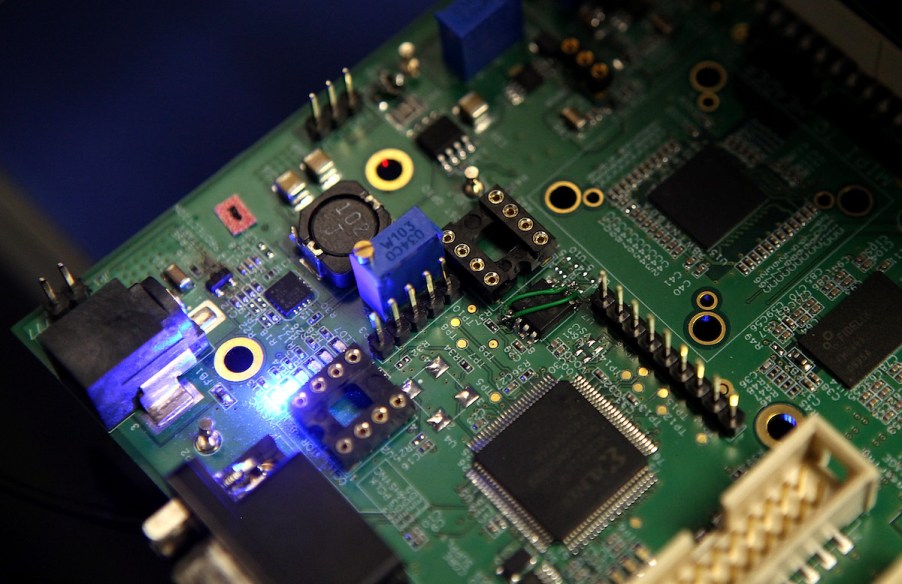
What Do Semiconductor Chips Do in Cars?
Cars are a critical part of everyday life, and things aren’t looking too hot for the auto industry. The semiconductor shortage — better known as the chip shortage — has prompted automakers to slow production or even halt it. Here’s a look at why semiconductor chips are so crucial to cars and what they do for us.
How semiconductor chips are made

Making semiconductor chips is a complex process. In fact, one of the jokes in the industry is that “It’s not rocket science — it’s much more difficult,” Bloomberg reports. That’s because these chips are tiny but highly complex. Despite their small size, they contain billions of transistors, and those transistors form the basis of the circuitry that allows machines to do their job.
These chips contain mostly contain silicon, an abundant element found in sand. However, due to their complexities, making chips is an intricate process. Manufacturers need huge facilities with dust-free rooms and costly equipment. All told, the chip manufacturing process takes over three months.
What do semiconductor chips do in cars?
Semiconductor chips can do some incredible stuff. According to Bloomberg, chips power a wide range of products, from washing machines to advanced satellites. Cars, too, use semiconductors. A vehicle’s touchscreen is essentially a computer, and that’s one area where chips play a vital role.
And chips control functions in other parts of cars, AZoM reports. For instance, safety features rely on chips. Those features include automatic emergency braking systems, backup cameras, and even airbag deployment systems.
In addition, while a car’s touchscreen needs chips, the car’s connectivity features will also need chips. Furthermore, automobiles might even have chips in the engine. Those chips can help improve the engine’s efficiency and lower emissions, AZoM reports.
And, of course, electric vehicles need plenty of chips. The semiconductors in an EV help control its powertrain and battery, in addition to their usual functions.
How the chip shortage affects automakers and the cars they produce
Because many parts of modern cars use chips, it’s no surprise the chip shortage has gripped the industry. Currently, many automakers have too many partially made vehicles but not enough chips to finish the build. So nationwide, thousands of nearly completed cars are sitting in parking lots next to assembly plants.
As a result, production numbers for most automakers are dropping. The chip shortage has even forced some companies to skip the 2021 model year of the difficulty of finishing cars. However, the problem has caused another issue: increased used car prices.
At the end of the day, most people need a vehicle. And because the short supply of new cars can’t meet consumer demand, shoppers are buying used cars instead. Due to that, even used vehicle prices have climbed.
However, these crises won’t last forever. But making semiconductor chips still takes a long time.


